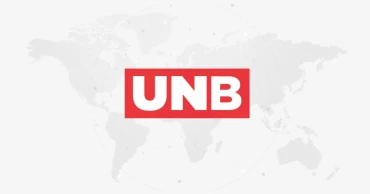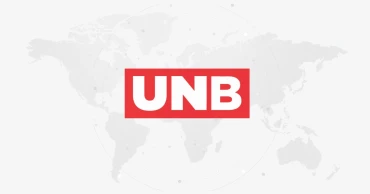Vacations
Canada begins allowing vaccinated US citizens to visit again
Canada on Monday is lifting its prohibition on Americans crossing the border to shop, vacation or visit, but the United States is keeping similar restrictions in place for Canadians, part of a bumpy return to normalcy from COVID-19 travel bans.
U.S. citizens and legal permanent residents must be both fully vaccinated and test negative for COVID-19 within three days to get across one of the world’s longest and busiest land borders. Travelers also must fill out a detailed on application on the arriveCAN app before crossing.
Read:Tribe claims remains of kids who died at assimilation school
Even though travelers have to register, the Canada Border Services Agency won’t say how many people they are expecting to enter Canada for the reopening. But travelers should plan for the possibility of additional processing time at the border.
“CBSA will not compromise the health and safety of Canadians for the sake of border wait times,” agency spokeswoman Rebecca Purdy said in a statement.
While the Canada Border Services Agency won’t say how many people it’s expecting, Garnet Health, an Essex, Vermont-based company that offers same-day COVID-19 testing, has seen the number of tests it performs more than triple in recent weeks. The increase coincides with Canada’s decision last month to drop a two-week quarantine requirement for its citizens when they return home from the U.S.
“I imagine once that border opens, we are going to see lots of people,” said Chelsea Sweeney, the company’s director of business development.
The U.S.-Canada border has been closed to nonessential travel since March 2020 to try to slow the spread of the coronavirus.
The U.S. has said it will extend its closure to all Canadians making nonessential trips until at least Aug. 21, which also applies to the Mexican border. But the Biden administration is beginning to make plans for a phased reopening. The main requirement would be that nearly all foreign visitors to the U.S. will have to be vaccinated against the coronavirus.
But Canadians aren’t waiting for reciprocal rules.
Joel Villanueva, owner of Primo’s Mexican Grill in White Rock, British Columbia, about 2.5 miles (4 kilometers) north of the U.S. border, is more than ready for Americans to return.
Read:Canadian Indigenous group says more graves found at new site
“Let’s get this thing going,” he said. “A lot of our customers are from the United States, and we are literally minutes from across the border. We welcome our Americans, and we depend on their foot traffic.”
Villanueva said he supports people coming who are fully vaccinated and doesn’t think there will be a rush of Americans initially. But if his restaurant and dozens of others along the waterfront could fill some tables with U.S. visitors every day for the rest of the summer, it would be a big financial boost, he said.
Near the border in Washington state, Blaine Chamber of Commerce board member Carroll Solomon called the reopening a step in the right direction for businesses. But she also said it was somewhat concerning because of an increase in COVID-19 cases nationwide as the highly contagious delta variant spreads.
“For people who need to get up there (to Canada) for family reasons, it’s wonderful,” said Solomon, who also volunteers at the Blaine Visitor Information Center.
With all the hoops people need to jump through — being fully vaccinated, getting tested for COVID-19 and uploading that information to an app — she doesn’t think that people will be going to Canada for many day trips.
“I have a lot of friends on the Canadian side and would love to go have lunch with somebody, but you can’t just do that; you have to plan days in advance to make sure you can get through,” Solomon said.
It’s going to be an event for the Blaine area when Canadians can come down on a regular basis, she said.
As far as returning to the United States from Canada, U.S. Customs and Border Protection spokesman Jason Givens said there’s no requirement to show proof of vaccination or a negative COVID-19 test.
Read:Unmarked graves found at another Indigenous school in Canada
“CBP officers have been processing essential travel throughout the pandemic and remain ready and able to process American citizens and permanent residents returning from Canada,” Givens said by email.
Steve Blake, who lives in Stanstead, Quebec, just across the border from Derby Line, Vermont, is hoping his siblings living in the United States will be able to visit Canada soon so they can hold a memorial service for their mother who died in early 2020, just before the pandemic closed the border. But given the requirements, he doesn’t know how quickly that will happen.
“I’d like it to be sooner rather than later,” he said.
4 years ago
French rush to get vaccinated after president’s warning
More than 1 million people in France made vaccine appointments in less than a day, according to figures released Tuesday, after the president cranked up pressure on everyone to get vaccinated to save the summer vacation season and the French economy.
Some bristled at President Emmanuel Macron’s admonition to “get vaccinated!” immediately, but many people signed up for shots, accepting that getting injected was the only way to return to some semblance of pre-pandemic life.
French government spokesman Gabriel Attal, noting the latest virus surges from South Africa to South Korea, and vaccine shortages in many poorer countries, appealed to his compatriots Tuesday to “look at what’s happening in the world.”
Read:Malaysia shuts vaccination center after 204 staff infected
Macron also announced that special COVID-19 passes will be required starting in early August to enter restaurants and shopping malls and to get on trains and planes. The announcement raised questions and worries among foreign tourists and as residents of France planning vacations.
An app that centralizes France’s vaccine appointments, Doctolib, said Tuesday that 1.3 million people signed up for injections after Macron gave a televised address Monday night. It was a daily record since France rolled out coronavirus vaccines in December. People under age 35 made up most of the new appointments, Doctolib said.
Macron said vaccination would be obligatory for all health care workers by Sept. 15, and he held out the possibility of extending the requirement to others. Around 41% of the French population has been fully vaccinated, though the pace of shots being delivered has waned as summer vacations approached.
Government spokesman Attal insisted the vaccine mandate wasn’t meant to “stigmatize” reluctant health workers but to limit risks to the vulnerable populations they care for.
Some residents said the government’s vaccine push makes them feel safer. At a vaccine center Tuesday in Versailles, finance worker Thibault Razafinarivo, 26, said, “I have a newborn baby at home, and we don’t want to take any risks.” A 23-year-old who works in radiology said she wants to protect her family and her patients.
Read:Death toll rises to 92 in blaze at coronavirus ward in Iraq
Others, though, expressed frustration at the idea of mandatory vaccines or needing passes to go to a café.
“I’m getting vaccinated because I want to have a social life and go on holidays,” law student Marius Chavenon, 22, said, adding: “I don’t think vaccination should be compulsory. We live in France, we should be able to do what we want.”
In Paris, nurse Solene Manable said, “There are many health workers who don’t want to get vaccinated because we don’t know much about the vaccines.” But she said she understood “many people who are getting vaccinated to be able to go back to restaurants,...to be able to have a normal life again.”
Some people said they’re now getting vaccinated because Macron also announced that France will start charging money for some virus tests, which up to now have all been free for anyone in French territory.
To get the COVID pass that will soon be required in all restaurants, people must have proof of vaccination or recent virus infection, or a negative test from the last 48 hours.
Read:US COVID-19 cases rising again, doubling over three weeks
Restaurant and bar unions demanded a delay for the passes, and government officials were meeting with industry representatives Tuesday. Restaurant workers expressed concern with enforcing the requirement and fear it could scare customers away after all French eating establishments stayed shuttered for nine months from the pandemic’s onset.
Health Minister Olivier Veran defended the new rule, saying, “The question is: It’s lockdown or the health pass.”
He also welcomed the renewed vaccine interest, saying on BFM television Tuesday: “That’s thousands of lives saved.”
More than 111,000 people with the virus have died in France.
4 years ago



